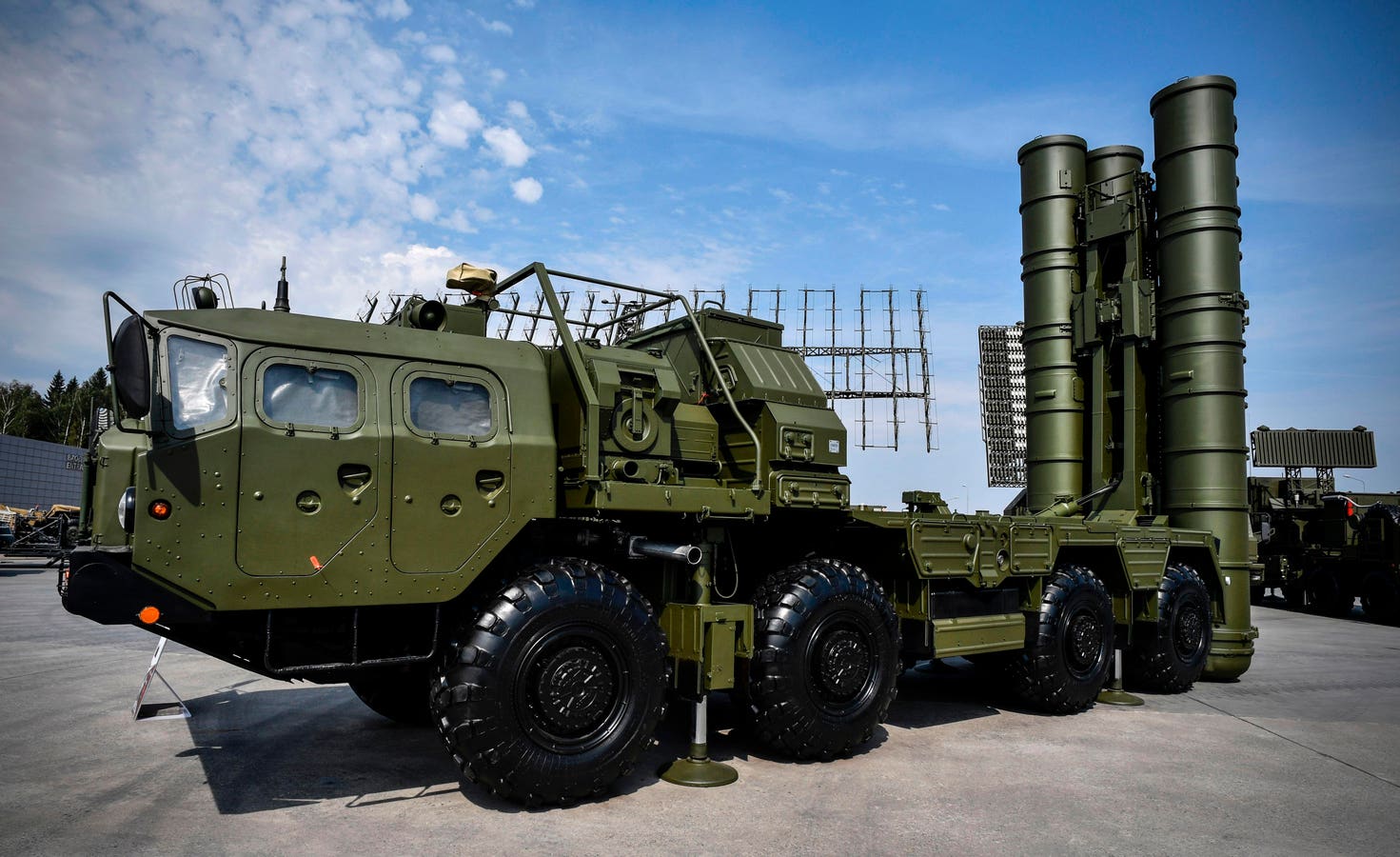Greece and Turkey reiterated their respective opposition to transferring their strategic Russian-built air defense missile systems to Ukraine or any other country in separate statements in recent days.
Following recent pressure from EU governments on Greece and Spain to transfer air defenses to a beleaguered Ukraine, Greek Prime Minister Kyriakos Mitsotakis ruled out any potential transfer of the country’s aging S-300 missiles based on Crete.
“Greece is not going to send S-300 or Patriot to Ukraine,” he told local television on April 25.
His comments followed renewed reports in Greek media in March that Athens might consider supplying Ukraine with its S-300PMU-1 if it could secure a supply of American MIM-104 Patriot in its place. While the S-300 is a relatively old system, Greece’s variant could still bolster Kyiv’s strained air defenses.
Mere days after Mitsotakis’s comment, Turkish Defense Minister Yasar Guler similarly dismissed out of hand that Turkey would consider transferring its much more modern Turkish S-400 Triumf system to any country.
“Giving our S-400 system to any other country is out of the question,” Guler declared on May 2.
Greece’s S-300s were initially meant for Cyprus but were transferred to Crete in the late 1990s after Turkey threatened to preemptively destroy the system if it arrived in Nicosia, triggering a tense crisis. Athens put all the missiles in storage for years and test-fired them for the first time in 2013.
On the other hand, Turkey bought its S-400s directly from Russia, receiving them in 2019 following years of warnings from the United States to cancel the order. Turkey ultimately faced sanctions under the 2017 Countering America’s Adversaries Through Sanctions Act, CAATSA, legislation and was removed from the F-35 Joint Strike Fighter program.
In January, U.S. Acting Deputy Secretary of State Victoria Nuland suggested Turkey could regain admission into the F-35 program if the S-400 issue was resolved. However, Turkish Foreign Minister Hakan Fidan reiterated that Ankara had no desire to relinquish the Russian system.
U.S. officials also warned Turkey against “activating” the S-400. They repeatedly affirmed the only way to resolve the dispute was to remove the entire system and all its components from Turkish soil. Ankara showed no intention of doing so in the five years since receiving the system. Fidan’s predecessor, Mevlut Cavusoglu, noted in May 2023 that Washington “asked us to send the S-400s to Ukraine, and we said no.”
While Turkey has repeatedly cried foul over Greece receiving no such reprimand for possessing S-300s, the State Department clarified Athens faces no sanctions since it acquired S-300s decades before CAATSA’s inception. Interestingly, an unconfirmed report claimed the U.S. did veto an attempt by Greece in 2020 to have Russia upgrade its S-300s to the PMU-2 configuration, which would have significantly increased the range and improved the accuracy of the missiles. The alleged move suggested Greece aimed to keep the S-300 in service for as long as possible, two decades after they touched down on Crete.
A recent editorial in Greek media also questioned the government’s refusal to send S-300s to Ukraine, noting that tensions with Turkey earlier in this decade have abated. And, even when they were at their height, Athens deployed one of its premier Patriot air defense systems to Saudi Arabia in 2021, when Riyadh faced missile and drone attacks from the Houthis in Yemen.
Unlike Greece, Turkey hasn’t put its Russian missile system into service or test-fired it yet, despite spending over $2.5 billion and facing significant penalties from Washington. Turkey accused Greece of using its S-300 to lock onto Turkish F-16s operating over international airspace in August 2022, a claim denied by Athens.
Recent Turkish media reports claim Ankara will deploy the S-400 on its border with Iraq ahead of a planned summer offensive against the Kurdistan Workers’ Party, PKK, group. If that is true, it would mark the Turkish Triumf’s first operational deployment.
Greece has an estimated 175 missiles for its 32 launchers. Turkey acquired over 120 long-range missiles with its two S-400 battalions.
Continued possession of such advanced Russian missiles by two NATO members that were never in the Warsaw Pact is indeed peculiar. Recent statements by Mitsotakis and Guler weren’t even the first time this year that both systems were briefly in the spotlight. And with Greece wanting to keep its S-300s on Crete for the foreseeable future and Turkey’s adamantly refusing to backtrack on its procurement of the much newer S-400, these systems will likely make headlines again.
Read the full article here





